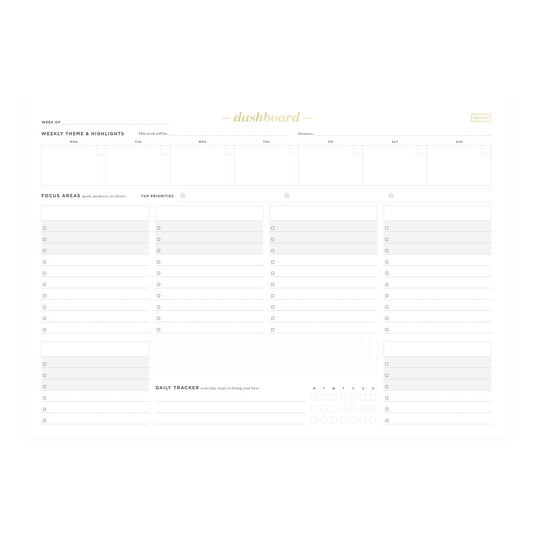A lot of growth can stem from checking-in with your manager.
How often do you sit down and discuss your work with your manager? One study found that about half of workers say they do so weekly. Others do it once a month or only for an annual review. Whatever your schedule with your manager is like, you’ll want to make the most of it, because it can end up helping you do your best work.
Of course, a 1:1 meeting can be intimidating. Being critiqued by your manager isn’t easy! That’s probably the part we all dread most about 1:1s. But they can also be constructive, and you get to have your voice heard with the person who has the greatest impact on your career.
So how do you have a really good meeting with your manager? There are a few ways you can elevate them so you and your manager can leave knowing it was a productive use of time.
Come prepared
It may seem a bit obvious, but being prepared for a 1:1 meeting is a big deal. This is your chance to communicate with your manager, ask questions, share ideas and talk about projects, tasks or office culture.
If possible, try to learn what the 1:1 meeting is about. For some, it’s to talk about a whole year of work and progress. For others, it’s a weekly check-in that helps move projects along, sort of like a status update.
Different meetings will require different preparation. Take some time before the meeting to gather any necessary notes, prepare data or information or write some questions down. Even in an easy-going meeting, it’s easy to become flustered, so it’ll help to have a few notes jotted down. You’ll appear more organized and you’ll feel better about wherever the conversation takes you.
If you’re meeting less frequently with your manager, you may want to keep a running list of things to potentially talk about during a 1:1. Lots can happen over the course of a month, quarter or year, and not all of these notes might end up being relevant in the end, but they may help you cite specifics in your meeting.
Remember, 1:1 meetings are helpful for you, but they’re even more helpful for your manager. They get to know you as a person and as an employee better. By raising questions or concerns, they also get to know more about what roadblocks you face and whether there is anything they can do to alleviate them.
Talk short term & long term
A lot of the time, managers will want to talk about growth or progress during a 1:1 meeting — which can sometimes be all over the map.
Make an effort to talk about both long term and short term goals, projects or tasks. It’s tempting to only talk about one or the other, but that can end up being short-sighted. Talking about the long term will help you conceptualize the goal and the short term will help you make a plan. If your manager is only focusing on one or the other, it’s smart to ask, “what does that mean for ____?”
This also goes for conversations about performance, which is another top topic of 1:1 meetings. Ask what your role looks like over the next few months, but also long term too. Even if you don’t see yourself sticking with the organization forever, it’s good to know what evolution looks like. It may help you form new ideas about where you want to go with your career or what you want to accomplish in your current role.
1:1 meetings can help you be a better worker, but they can also help you figure out what you want to do.
Leave with next steps
Meetings with managers can be easily sidetracked – especially because you probably aren’t talking to them everyday – so before you leave your meeting, make sure you have a clear picture of what your next steps are.
Perhaps you discussed areas of improvement. What would your manager like to see you achieve before your next meeting? Or, maybe you discussed a specific project. If so, make sure you have details, like deadlines and priorities, or a timeline.
Knowing what your next move is will help you have better future meetings, too. You won’t have to focus on the same talking points and you’ll continue to grow within your role. Hopefully, you’ll be able to see the progress with each new 1:1 meeting.
During these meetings, it’s important to also talk about your own goals and what you want to accomplish. Your manager will probably have good insight because they were likely once in your same position. They can speak to what worked well for them, what didn’t, and nudge you in the right direction.
Talking about your goals also helps show your manager that you’re a self-starter and interested in progressing.
Make time to reflect afterward
Whether your 1:1 meeting went as well as you’d hoped or not, you should take some time after to reflect on the conversation, what’s next and what you want to accomplish before your next meeting. It can take a little bit of time to let everything sink in. After all, your meeting probably covered a lot of ground, and it can be difficult to keep up with it all in the moment.
If it helps, outline your meeting or study your notes. You may realize that you have follow-up questions or ideas you want to share with your manager. Reaching out to them after your meeting isn’t a bad thing – though we often feel a little intimidated by it. If it’s something that can wait until your next meeting, just remember to make a note of it for then.
Finally, give yourself a pat on the back. Meeting with a manager isn’t always easy (growth never is!), but a productive conversation will make you better at your work.









